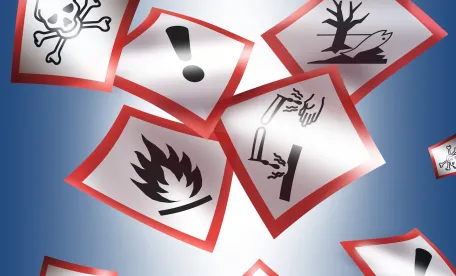On June 22, 2020, the U.S. District Court for the Eastern District of California granted summary judgment for the Plaintiffs in National Association of Wheat Growers et. al. v. Becerra, and entered a permanent injunction against enforcement of a Proposition 65 (Prop 65) warning label for pesticide products containing glyphosate. The court found that requiring the registrants of glyphosate products to include such a warning could not be justified as a valid restriction on commercial speech and therefore is contrary to the First Amendment of the Constitution. The same District Court had previously entered a preliminary injunction against the Prop 65 warning in 2018, and the required warning has consequently never been in effect. (See our February 28, 2018, blog entitled “Eastern District of California Rules on Motion to Enjoin Prop 65 Listing and Warning on Glyphosate Products.”) The U.S. Environmental Protection Agency (EPA) also has stated that it would not allow a Prop 65 warning to be added to the labeling for any registered glyphosate product because such a warning is misleading and would cause the product to be “misbranded” under Federal Insecticide, Fungicide, and Rodenticide Act (FIFRA) Section 2(q)(1)(A). (See our August 15, 2019, blog entitled “EPA Issues Guidance Regarding Prop 65 Labeling Requirements for Glyphosate Products and OEHHA Responds.”)
A Prop 65 warning is required when the California Office of Environmental Health Hazard Assessment (OEHHA) determines that a product contains a substance that has been classified as a human carcinogen by certain authoritative bodies, including the International Agency for Research on Cancer (IARC). Based on an IARC determination that glyphosate is “probably carcinogenic” in humans, OEHHA listed glyphosate in July 2017 as a chemical known to the State of California to cause cancer, thereby triggering Prop 65 warning requirements. Despite the IARC determination, every other authoritative body that has considered the matter (including EPA, the European Commission, and the World Health Organization) has reached a contrary determination that glyphosate is not likely to be carcinogenic in humans. California’s imposition of a Prop 65 warning for glyphosate was challenged in 2018 by the registrant Bayer and a coalition of farming groups and industry stakeholders, who obtained a preliminary injunction against enforcement of the warning.
Before entering the new permanent injunction, the District Court considered whether California’s regulation of commercial speech should be scrutinized under the lower standard set by the Supreme Court in Zauderer v. Office of Disciplinary Counsel or the intermediate standard set by Central Hudson Gas & Electric v. Public Service Commission. The Zauderer standard only applies to mandatory disclosure of “purely factual and uncontroversial information,” and the Court found that the Prop 65 warning for glyphosate is “misleading” and therefore neither factual nor uncontroversial. Under the Central Hudson level of scrutiny, a governmental agency may only restrict commercial speech when the restriction directly advances an important governmental interest and where the restriction is not more extensive than necessary to serve that interest. The Court found that the Prop 65 warning for glyphosate is misleading, and therefore does not directly advance the interest of the state in informing consumers regarding potential cancer hazards, and that the asserted state interest could be effectively advanced by other measures that do not burden freedom of speech in the same manner.
California argued that no Prop 65 warning would actually be required for glyphosate in practice because OEHHA has set a quantitative “safe harbor” level for glyphosate exposure, but the court found that this would not prevent parties other than California from bringing separate enforcement actions to enforce the listing. Since a Prop 65 warning only needs to be “clear and reasonable,” California also proposed several alternative forms for a warning that would meet state requirements, but the court found these alternate warnings to all be misleading as well. Based on all of these factors, the court decided to enjoin permanently the enforcement of Prop 65 warning requirements for glyphosate as an unconstitutional burden on commercial speech.
Commentary
Under FIFRA Section 24(b), no state may impose any labeling for a registered pesticide that differs from the labeling approved by EPA. Although EPA has sometimes been willing to accommodate state labeling requirements or preferences within the labeling approved under FIFRA, there are necessary limits to this practice. When label language sought by a state becomes misleading, approving it would also be expressly contrary to FIFRA. How much precedential effect this decision may have with respect to other state requirements for labeling in the future is an issue that registrants should monitor closely.




 />i
/>i

